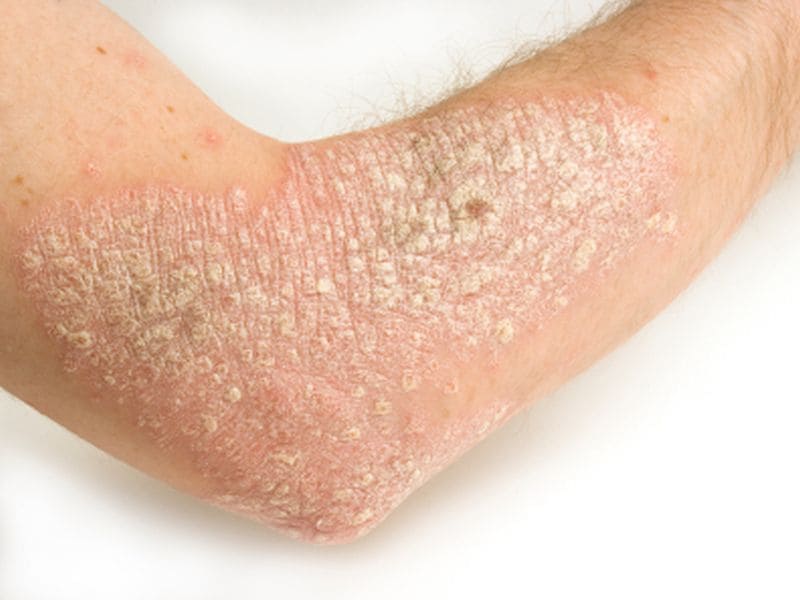Risk for hospitalization increased for patients using nonbiologic systemic therapy versus biologics
FRIDAY, Oct. 23, 2020 (HealthDay News) — For patients with psoriasis, survival from COVID-19 is high, with increased hospitalization risk in association with nonbiologic systemic therapy versus biologic use, according to a study published online Oct. 16 in the Journal of Allergy and Clinical Immunology.
Satveer K. Mahil, M.D., Ph.D., from Guy’s and St. Thomas’ NHS Foundation Trust in London, and colleagues characterized the course of COVID-19 in psoriasis and identified factors associated with hospitalization using data from an international registry.
The researchers found that 71, 18, and 10 percent of the 374 clinician-reported patients from 25 countries were receiving a biologic, a nonbiologic, and no systemic treatment for psoriasis, respectively. Overall, 93 percent of the patients fully recovered from COVID-19; 22 and 2 percent were hospitalized and died, respectively. The risk for hospitalization was increased in association with older age (multivariable-adjusted odds ratio [OR], 1.59 per 10 years), male sex (OR, 2.51), non-White ethnicity (OR, 3.15), and comorbid chronic lung disease (OR, 3.87). Patients using nonbiologic systemic therapy were hospitalized more frequently than those on biologics (odds ratio, 2.84). There were no significant differences noted between biologic classes. Lower levels of social isolation were suggested in individuals receiving nonbiologic systemic therapy compared with biologics (OR, 0.68) using independent patient-reported data (1,626 patients across 48 countries).
“We can reassure our patients that the survival for people with psoriasis is high, and the risk factors for psoriasis patients are similar to those of the general population,” Mahil said in a statement.
Several authors disclosed financial ties to the pharmaceutical industry.
Abstract/Full Text (subscription or payment may be required)
Copyright © 2020 HealthDay. All rights reserved.

